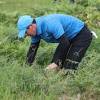All Blacks sensation Caleb Clarke promises greatness - but faces a tough path

ANALYSIS: A fellow couch potato commented after yet another bruising Caleb Clarke run at Eden Park on Sunday that “this kid will be an All Black for a long, long time.”
That seemed difficult to argue with – Clarke was in the process of swatting away Wallabies like pesky Nullarbor Plain flies in one of the most exciting debut test starts.
But the predicted path from ‘future great’ to ‘great’ comes without a guarantee.

Mark Baker/AP
Caleb Clarke left Wallabies in his wake throughout a triumphant starting debut for the All Blacks.
Injury, illness, weight and the toll of his physical approach are all factors that could yet slow the rise of the latest All Black wing phenomenon.
READ MORE:* Mark Reason: Why the All Blacks have a tragic wasteland of wings* Prolific All Blacks try scorer Joe Rokocoko retires from rugby* Careers are fleeting for All Blacks wings – even the best* England wing hailed as the 'new Jonah Lomu' after Wallabies win * Rieko Ioane - the perfect blend of Lomu, Cullen and Umaga, says Doug Howlett
Comparisons to the late Jonah Lomu flooded in from across the Tasman after NZ’s 27-7 victory, with the 21-year-old received a standing ovation for his man-of-the-match performance.
And while Lomu somehow – despite debilitating health woes – managed to play 63 tests and score 37 tries, his highs were both dizzying and capricious.
A string of trailblazing wingers have broken through into the national side at a tender age, only to never completely fulfil their mouth-watering potential for a host of reasons.
Sky Sport
Caleb Clarke explains the Michael Hooper tackle.
Clarke doesn't need to look any further than the current team bus for the warning signs that his place in the All Blacks XV will never be assured.
Sevu Reece made his test debut aged 22 last year against Argentina, was a first-choice winger at the World Cup in Japan, has scored four tries in seven tests but hasn’t got on to the field in the first two tests of 2020 after falling behind Jordie Barrett, George Bridge and Clarke in the pecking order.

AP
Rieko Ioane bombed a certain try for the All Blacks in the first half of their first Bledisloe Cup test.
Rieko Ioane made his first All Black start as a teenager in 2016 and has 24 tries in 30 tests. But he lost his starting spot last year and after a switch to centre in Super Rugby this season, was the first-choice test 13 for the late season-opener in Wellington – only to hit the headlines for blowing a try, which was followed by his omission for the starting side in Auckland before an injury ruled him out of a place on the bench.
A number of wingers who burst onto the test scene did forge stellar All Black careers – John Kirwan played his first test aged 19 and had 10 years in the national side, scoring 35 tries; Jeff Wilson scored three tries on debut a day before his 20th birthday before scoring another 41 over eight seasons; Joe Rokocoko touched down 46 times in tests over seven years after his first start eight days after his 20th birthday and Doug Howlett is still the most prolific NZ test try-scorer with 49 in 62 tests after debuting as a 21-year-old.
But massive futures were also predicted for the likes of Jasin Goldsmith, Regan King, Nehe Milner-Skudder, Zac Guildford, Grahame Thorne and Inga Tuigamala.

Masanori Udagawa/Getty Images
Nehe Milner-Skudder plays for Manawatu in the Mitre 10 Cup.
Major injuries crippled the careers of Goldsmith and Milner-Skudder – the former made his ABs debut aged 18 but broke his leg while still a young star and never got to play a test, while Milner-Skudder was a relative late-starter at 24 but scored a try in the World Cup final in his debut season, was named the World Rugby Breakthrough Player of the Year before shoulder injuries left him with just 13 tests and 12 tries and a long way back from provincial rugby to recapture past glories.
King scored a try on his test debut aged 22 but his career also stalled with injuries a factor before he headed to France then Wales, while Thorne – chiefly a centre – made his test debut as a winger in 1968 at 22 but only played 10 tests with one try in three years before moving to South Africa.
Guildford’s All Black stint lasted three years while Tuigamala debuted at 20 and his last test came exactly two years later, before he was revitalised playing rugby league for Wigan.
Expectations for shooting stars are so lofty that even wingers who scored tries for fun or spent eight years at test level still had question marks over their greatness.

David Rogers/Getty Images
Julian Savea scores a try for the All Blacks against Argentina in 2012.
Julian Savea notched a hat-trick of tries on debut against Ireland as a 21-year-old in 2012, starred as NZ won the 2015 World Cup, scored test tries at a better rate (46 in 54 games) than any player in All Blacks history who played more than 20 tests, but he played his last two tests in 2017 as younger talents pushed him into the background.
Bryan Williams was a sensation as a teenager despite the All Blacks losing their 1970 series 3-1 to the Sprinboks in South Africa. He scored a try on test debut, was denied another in the second test by a referee’s error, touched down again in the final test and 14 times on the tour from 13 appearances.
He went on to play 113 games for the national side, including 38 tests, but ended with only 10 test tries and was never as impactful as he was in his debut year.
AT A GLANCE:
Jonah Lomu
All Blacks debut: v France in Christchurch, 19 years and 45 days old
Height: 1.96m
Weight: 119kg
Speed: Lomu was could reportedly run the 100m in 10.8 seconds but that was never certified. In his final year at Wesley College, he won the school sprint title in 11.2s.
Caleb Clarke
All Blacks debut: v Australia in Wellington, 21 years and 196 days
Height: 1.84m
Weight: 107kg
Speed: A former secondary schools sprint champion, Clarke ran an 11.0s 100m when he was 15.


 New Zealand
New Zealand Argentina
Argentina  Australia
Australia  Austria
Austria  Brazil
Brazil  Canada
Canada  Chile
Chile  Czechia
Czechia  France
France  Germany
Germany  Greece
Greece  Italy
Italy  Mexico
Mexico  Nigeria
Nigeria  Norway
Norway  Poland
Poland  Portugal
Portugal  Sweden
Sweden  Switzerland
Switzerland  United Kingdom
United Kingdom  United States
United States 






